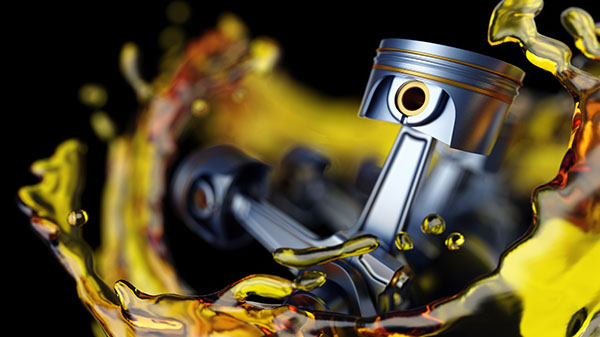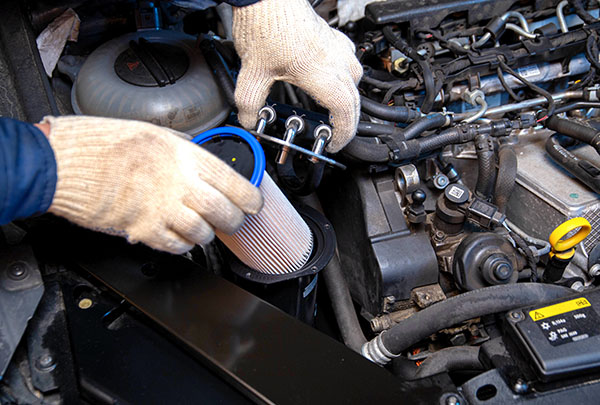Posted on 4/27/2024

Are you a proud owner of a classic car or considering embarking on the exhilarating journey of classic car restoration? Whether you're an enthusiast or a novice, classic car restoration and maintenance can be rewarding and challenging. Let's go on a journey of preserving the beauty and legacy of these timeless automobiles. Understanding Classic Cars Understanding what sets them apart is important to appreciate classic cars and restore and maintain them properly. By grasping the unique features of a classic car, we can take the necessary steps to preserve their legacy and keep them on the road for generations to come. Classic cars are more than just vehicles; they're cherished pieces of history, often possessing unique designs, craftsmanship, and cultural significance. Typically, classic cars are those manufactured between the 1920s and the 1980s, with models from renowned brands such as Volkswagen, Jaguar, Porsche, and Mercedes-Benz among the most ... read more
Posted on 3/29/2024
.jpeg)
When it comes to keeping your vehicle in top condition, regular maintenance is key. What exactly does mile maintenance entail, and why is it essential for the longevity and performance of your car? What Is Mile Maintenance Mile maintenance refers to the scheduled maintenance tasks recommended by vehicle manufacturers at specific mileage intervals, typically at 30,000, 60,000, and 90,000 miles. These intervals are crucial checkpoints in your vehicle's lifespan, where certain components and systems may require inspection, adjustment, or replacement to ensure optimal performance, reliability, and safety. By adhering to these recommended maintenance schedules, you can mitigate the risk of unexpected breakdowns, extend the life of your vehicle, and maintain its resale value. The 30K Mile Maintenance Service At the 30,000-mile mark, your vehicle is due for a comprehensive check-up to keep it running smoothly. Here's what's typically in ... read more
Posted on 2/26/2024

In the heart of your vehicle's engine, a small but mighty component works tirelessly to protect and maintain the engine's health and longevity. We are talking about the engine oil filter - it plays a critical role in your vehicle’s performance. We will take a look at what it does exactly, why it's so important, and a few maintenance tips, so don't miss out. The Critical Role of the Engine Oil Filter At its core, the engine oil filter removes contaminants from the engine oil that can accumulate over time. These contaminants include metal particles, dirt, and soot, which can wear down engine components and reduce efficiency. By filtering out these harmful particles, the oil filter helps maintain the quality of the engine oil, ensuring it can effectively lubricate and protect the engine parts. Without a functioning oil filter, the engine oi ... read more
Posted on 1/30/2024

Brake lines are the heroes of your vehicle's safety system. They are crucial for precise and reliable braking, but what happens when air infiltrates these lines? Knowing the signs of air in your brake lines is helpful, to say the least. 1. Spongy or Soft Brake Pedal One of the most noticeable signs of air in your brake lines is a spongy or soft brake pedal. When you press the pedal, it may feel unusually soft or fail to offer the usual resistance. This happens because air compresses more easily than brake fluid, diminishing the hydraulic pressure needed for effective braking. 2. Inconsistent Braking Performance If your car's brakes feel inconsistent, with varying responsiveness, it could be a sign of air in the brake lines. You might experience adequate braking one moment and reduced effectiveness the next. Inconsistencies like this pose a significant risk a ... read more
Posted on 12/21/2023

In the intricate balance of automotive components, there's a certain one that silently guards your engine's well-being - the fuel filter. Nestled away from the spotlight, this unassuming yet crucial element plays a vital role in ensuring your vehicle's heart, the engine, receives only the cleanest fuel. Join us on a journey to demystify the fuel filter, understanding its silent vigil and knowing the cues that signal it's time for a change. The Fuel Filter's Function As fuel journeys from the tank to the engine, the fuel filter serves as the foremost line of defense against contaminants. It meticulously sifts out impurities - dirt, debris, and rust - that have the potential to compromise the engine's performance. The result is a clean, uncontaminated flow of fuel that keeps the engine functioning optimally. When Does the Fuel ... read more